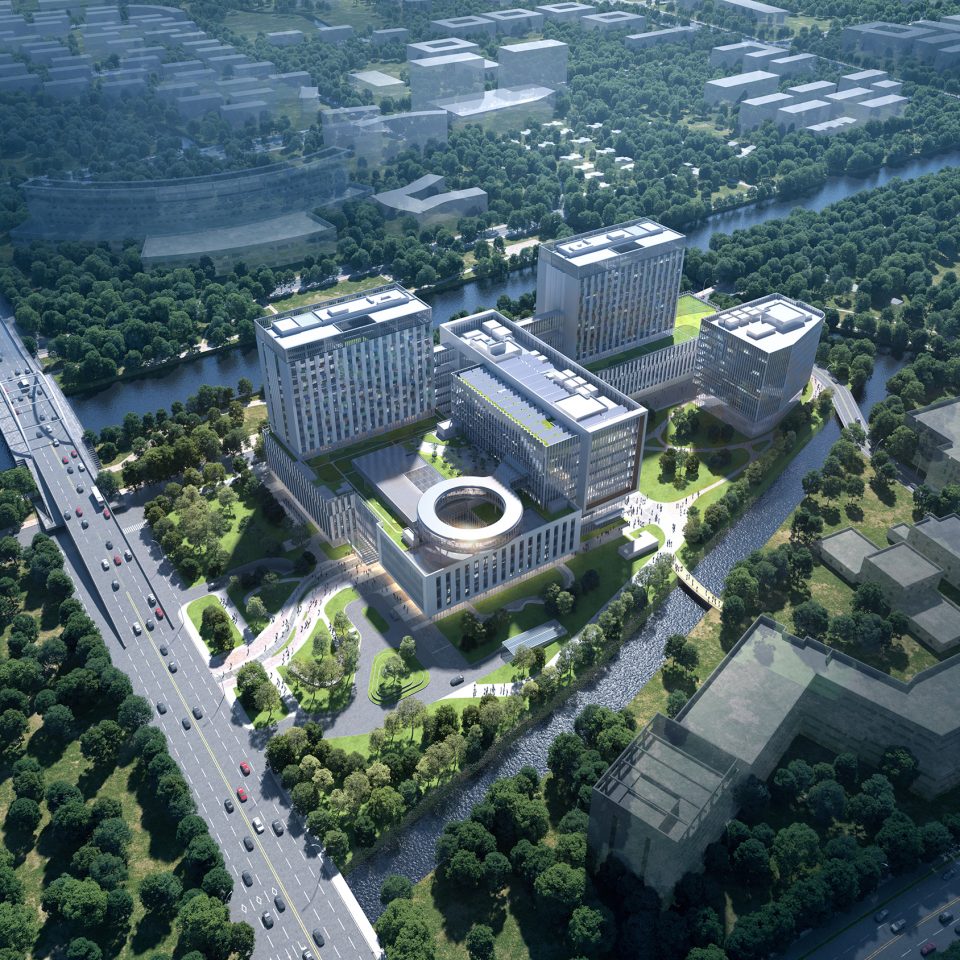项目图片
The new Shanghai Clinical Research Center integrates medical care, research, and education, bringing together high-end medical resources in Shanghai with a primary focus on treating severe diseases. Its goal is to transform into a cutting-edge clinical research center that amalgamates advanced global technologies, including medical science, biomedical technology, and artificial intelligence.
Located within the Zhangjiang High-tech Park in the Pudong New Area of Shanghai, the center strategically neighbours ShanghaiTech University and is surrounded by esteemed national scientific research institutions such as the Shanghai Institute of Materia Medica (Chinese Academy of Sciences), Shanghai Advanced Research Institute (Chinese Academy of Sciences), and the National Protein Science Research (Shanghai) Facility. This fosters a rich environment for collaboration and drives continuous advancements.
The new design was established through a schematic design competition featuring four world-class design firms. B+H won first prize with a design that aims to develop new industry benchmarks in the design and development of medical research centers.

The design philosophy centers on “On-Stage” and “Off-Stage” areas. “On-Stage” areas cater to medical care and research needs, offering an environment tailored for patients, caregivers, visitors, and families. “Off-Stage” spaces provide a serene environment for education, collaboration, and relaxation. This thoughtful design fosters a porous healthcare environment that encourages teaching, learning, and healing.
The landscape design revolves around the concept of “A Park in The Hospital, And A Hospital in The Park,” creating a visually stimulating and healing environment. Water surrounds the site on three sides, and a riverside greenway borders it to the north. This natural setting contributes to patient and staff well-being amidst the bustling research and medical institutions.
A key element of the design strategy was the opportunity to create an integrated campus that seamlessly merges three distinct functions: a world-class hospital, a clinical research center, and a talent education base. The schematic design breaks away from traditional healthcare design norms by dissolving the boundaries between these spaces, creating a cohesive and interconnected campus. A specially designed “freeway” facilitates effortless transitions between clinical spaces, research laboratories, and training areas, fostering meaningful interactions among patients, doctors, and researchers.
This design prioritizes the needs of medical experts and scholars, empowering them to deliver exceptional patient care, advance medical research, and cultivate the next generation of healthcare leaders.